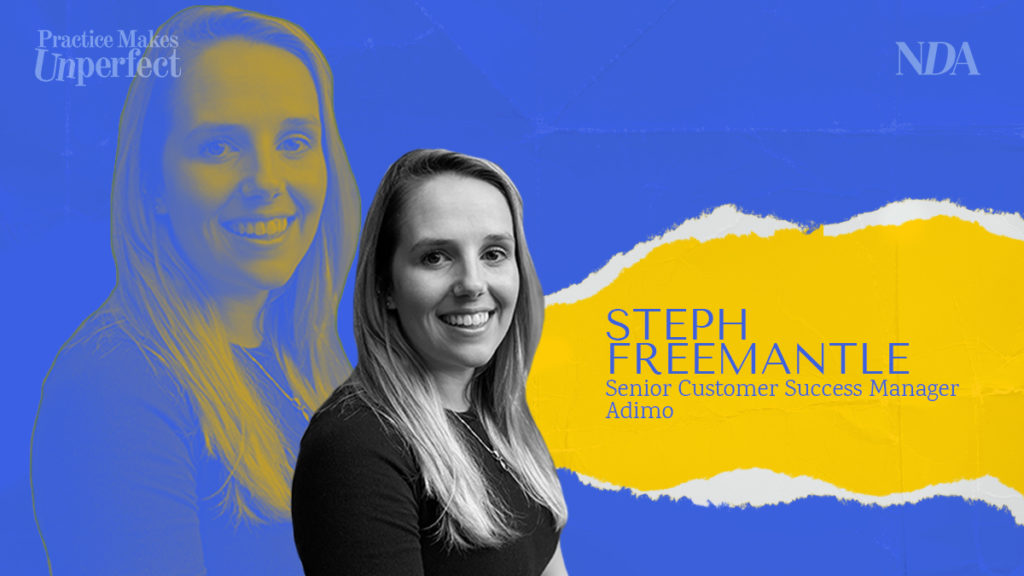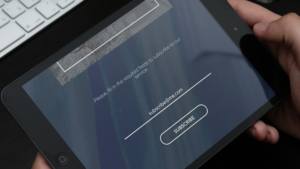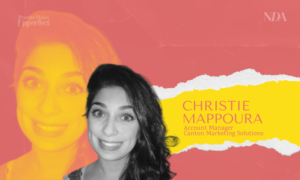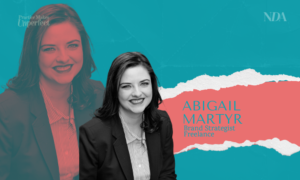These articles have been written by the latest cohort of the Practice Makes UnPerfect programme – a course that helps women find and finesse their public voices.
By Steph Freemantle Senior Manager, Customer Success, Adimo
The definition of a lie is “to say or write something that is not true in order to deceive someone”.
They say that the truth hurts, and in this case it really does. Lying is a condition of life. There is a broad spectrum of lying, from big and ugly, to smaller arguably harmless tactful white lies. But big or small, a lie is a lie… and we all do it regularly.
The average person spends 90,000 hours at work in a lifetime. Therefore it only makes sense that lying is a big part of our professional lives. Regularly choosing or being asked to say or write things which are untrue… to save face, to impress others, to avoid conflict, and many more reasons.
Research shows that we are on average lied to between 10 and 200 times a day, and we ourselves tell between 1 and 2 times a day. To further reinforce our human acceptance of lying, studies have also shown that on average we only spot 54% of lies – highlighting just how blind we all are to deception a lot of the time.
Unsurprisingly, lying is scientifically proven to also have negative impacts on our health and relationships. But all is not lost – telling lies and/or cooperating in others lies isn’t necessary! However, trust and honesty is.
We don’t need science to prove that lying erodes trust – the saying ‘tell a lie once and all of your truths become questionable’ rings true. I am not a scientist but I am confident that at some point we have all personally experienced lying professionally and/or witnessed industry examples in the media.
From mainstream pop-culture, ‘the world’s biggest festival flop’ FYRE Festival. Throwing the spotlight on deception and the use of influencer marketing to make “promises” of luxury accommodation, the best in food, art, music and adventure. But instead the reality was soggy mattresses and sweaty cheese sandwiches. In this example there was no chance that the organiser was going to get away with the deception, and was convicted of fraud. However, this does not redeem the lies or rebuild the trust of the thousands of attendees who were left out of pocket and more importantly the damage this did to their (any many others) faith in online marketing.
To broader media industry examples, such as the well known challenge from P&Gs Marc Pritchard, demanding reform from the “complicated, non-transparent, inefficient…supply chain”. Questioning and calling attention to the “deceptive” side of the industry – made up of elements such as hidden media wastage and increasing CPMs. Pritchard put his reputation on the line and spoke out against the deception, leading the charge and the positive shift towards transparency and innovation.
There is always another option to lying. It may be an uncomfortable one – such as making the choice to face the consequences: like owning up to the fact your festival isn’t possible or challenging the media supply chain like Marc Pritchard.
In the industry we are witnessing a shift, with consumers increasingly demanding transparency and honesty from businesses (and rightly so). To name a few topical examples: cookie policies and data collection, Tik Toks algorithm working against those it deemed ‘poor’ or ‘ugly’, and unfounded makeup claims. Marketing can form a two way bridge between brands and consumers, facilitating a positive shift away from the walled deceptive gardens of the past and surfacing humanity.
Just because lying “works” 54% of the time, doesn’t make it effective. We should all be proactive and demand the same transparency and honesty in the B2B world that consumers are demanding. This will enable us all to evolve and build stronger professional relationships – built on transparency, honesty and most importantly trust.
Lying will always exist socially because of Father Christmas and “does my bum look big in this” – a true social lubricant. However, professionally, lying is unnecessary – but honesty and subsequently trust are not. So next time you are conscious you are about to lie, I urge you to think about the other honest options. Y
ou don’t need to lie, we are all human beings and remember Practice Makes Unperfect.









